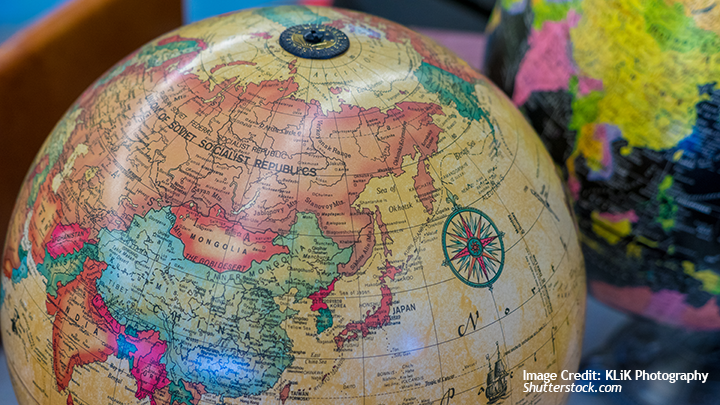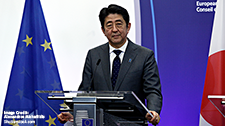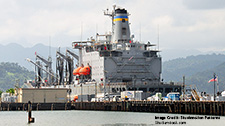The Global South Scaled in Japan’s New Outreach

Jagannath Panda
The “Global South” is no longer just a growing buzzword confined to academic publications but has found increasing resonance in strategic circles. Even as Russia’s invasion of Ukraine consolidated the West, it also catalyzed the already existing fissures between the developing world and the industrialized nations. The absence of the Global South countries in supporting the Western sanctions, as also to some extent the abstentions in the United Nations (UN) resolutions against Russia, have propelled the global geostrategic significance of this part of the often-neglected world.
Against this scenario, India via its current presidency of the Group of Twenty (G20) has re-directed its focus on the Global South and emerged as its “voice.” Amplifying the stakes of this “equivalent voice” has in fact become one of the pre-eminent goals of India’s multipolar global vision.
Taking a cue from this reshuffle in global geopolitics, India’s long-standing partner Japan has been highlighting the shifting balance of power in global politics and the importance of sharing the global governance responsibilities with the Global South. Japanese Prime Minister Fumio Kishida has since January emphasized reconfiguring an international order that takes note of the growing need to embrace diversity to further cooperation and minimize divisions.
Japan’s invitation to eight guest countries for the May summit of the Group of Seven (G7), which it hosts in 2023, and the inclusive agenda at the G7 summit in Hiroshima reflected Kishida’s desire to unify the world to face the rising threats from the authoritarian states, primarily China and Russia. What would be the trajectory of this new outlook striving for equivalence among nations? Can Japan engage in a meaningful way with the Global South, or will the grand rhetoric fade away in time?
What’s in a Name?
The Global South as a concept has been traditionally used in the post-Cold War scenario rooted in the Non-Aligned Movement to refer to economically disadvantaged states. Importantly, the term often transgresses geographical borders to include territories with a shared experience of historical (e.g. colonial experiences) or post-globalization economic and political control by primarily the industrialized West.
Today, it mainly includes developing and emerging economies, a bulk of which lie in Africa, Asia, Latin America, and Oceania. It is often seen as a viable alternative to the term “Third World,” which has obvious negative hierarchical connotations – putting “three-fourths of humanity” as an afterthought to the First and Second Worlds. The terminological debates notwithstanding, “Global South” seeks to neutralize the damages, if not create a new united but diverse identity, caused by traditional normative Western views.
Above all, these developing nation-states in contemporary geopolitics have begun to reclaim their own stake and relevance in regional and world politics by exercising their limited means (e.g., access to natural resources or votes/support in multilateral initiatives). Their new “non-aligned 2.0” stance in the Russia-Ukraine war is an example of such political-strategic resistance.
Not Yet Ideal for Japan?
In January, just as Prime Minister Modi was headlining “Voice of Global South Summit 2023,” as part of the G20 presidency, Kishida, too, began Japan’s G7 presidency by emphasizing on boosting relations with “those referred to as the Global South.” This cooperation was in fact one of the three key agenda points in his vision for the “next international order.” Kishida’s March visit to India, where he laid the blueprint for his new “free and open Indo-Pacific” plan, consolidated the view that Japan was serious about its intent to facilitate the Global South states as partners for inclusive global governance. Both times, Kishida did not avoid using the term; even the “issues to be addressed at the G7 Hiroshima Summit” section mentions outreach to the Global South.
However, the G7 leaders’ communique released at the summit eschewed the use of the term; as did Japan’s official statement post the meeting with Modi – India retained the use of the term in its official statement. At the same time, the G7 documents included the engagement with “developing and emerging” countries as a focus in areas ranging from taxation to climate action through a “cooperative approach.”
This subtle shift to an extent in Japan’s (more in G7’s) outlook and lack of a substantive or focused agreement on the Global South during the G7 summit indicate that Japan may indeed, for the time being at least, view the Global South through a narrow developmental lens, not as an equal partner. This is in contrast to India’s approach, which by placing itself as the leader of the diverse group, has put the Global South at the forefront of its global ambitions and goals.
Complications Galore
One of the most important factors contributing to Japan’s reluctance in fully embracing the Global South concept is the significant domestic pressure and competition for limited resources within Japan. The country faces its own economic challenges, such as an aging population and high public debt, which necessitate careful allocation of resources. Keeping this in mind, Japan’s foreign policy trends suggest a cautious, conditional approach toward the Global South.
Notably, Japan’s developmental engagement often emphasizes bilateral cooperation and targeted initiatives rather than blanket policies for the entire Global South. Japan’s foreign policy focuses on building strategic partnerships with countries that have shared interests and align with its objectives, such as infrastructure development, technology transfer, and capacity building. This approach allows Japan to maximize its impact and ensure the effectiveness of its assistance.
Hence, institutionalizing the Global South as one entity, when even the countries of the Global South have no full consensus over the idea and what it should encompass, poses a challenge for Tokyo. Officially, Japan does not have a clear definition of the Global South, mostly referring it to include “emerging and developing countries.”
Moreover, as a trusted, quality-conscious top official development aid (ODA) provider, Japan’s reluctance can also be attributed to concerns regarding the effectiveness and efficiency of aid delivery mechanisms. As such, it may be cautious about the potential risks and unintended consequences associated with broad-based initiatives that may not be tailored to specific country contexts.
Engaging the Global South: Not All Is Lost
Nonetheless, it is Japan’s very status as a regional Asian giant, an emerging world power, and most importantly, the world’s top ODA provider since the 1980s that propels its stake and role in the Global South and the related geopolitics. As a result, Tokyo’s engagement with the Global South assumes central importance, alongside that of India and China (the latter for its part has long advocated the Global South terminology and idea of “reclaiming” its potential, albeit within the socialist fold).
Yet Japan has been viewed often as a “passive member of the Global North.” And countries like China and Russia, which build bilateral and multilateral consensus by playing on the prevalent fears that the West’s interests do not align with the rest of the world’s, have also hyped the notion of Japan as a wealthy nation-state seeking to “assert its ‘Western identity’ on Asian soil.” Hence, a deeper connection with the Global South, besides the usual developmental aid partnership, is imperative. It will help counter not just the dependence on China and Russia for economic security (e.g., in accessing critical minerals where the two authoritarian states have dominance) but also their disinformation campaign among the developing world.
Fitting Into Kishida’s Trade Policy
Kishida’s intent to support sustainable infrastructure, including in manufacturing, transportation, and renewable energy in the Global South is a step in the right direction. Japan’s latest white paper on trade highlights cooperation with “reliable” emerging and developing countries on materials supply chains. Such prioritization is important for Japan’s long-term goals to enhance domestic growth and global competitiveness.
Notably, the Global South has emerged as a fulcrum for India and Japan’s combined efforts toward regional/sub-regional integration through third-country cooperation. At the same time, the two partners differ in their approaches to the Global South: India identifies itself as part of this growing diversity of nations, whereas Japan, the sole Asian leader among the largest industrialized economies of the G7, has the outsider’s perspective.
For Japan, the Global South is certainly an important avenue to strengthen economic security via access to the diverse markets. But, importantly, Japan in the new era should look to build bridges – a reliable balancer in the rich versus poor or North versus South dichotomy discourse.
This piece was first published at the Japan Forward on July 21, 2023, and is a part of author’s column titled “Asia’s Next Page“.




